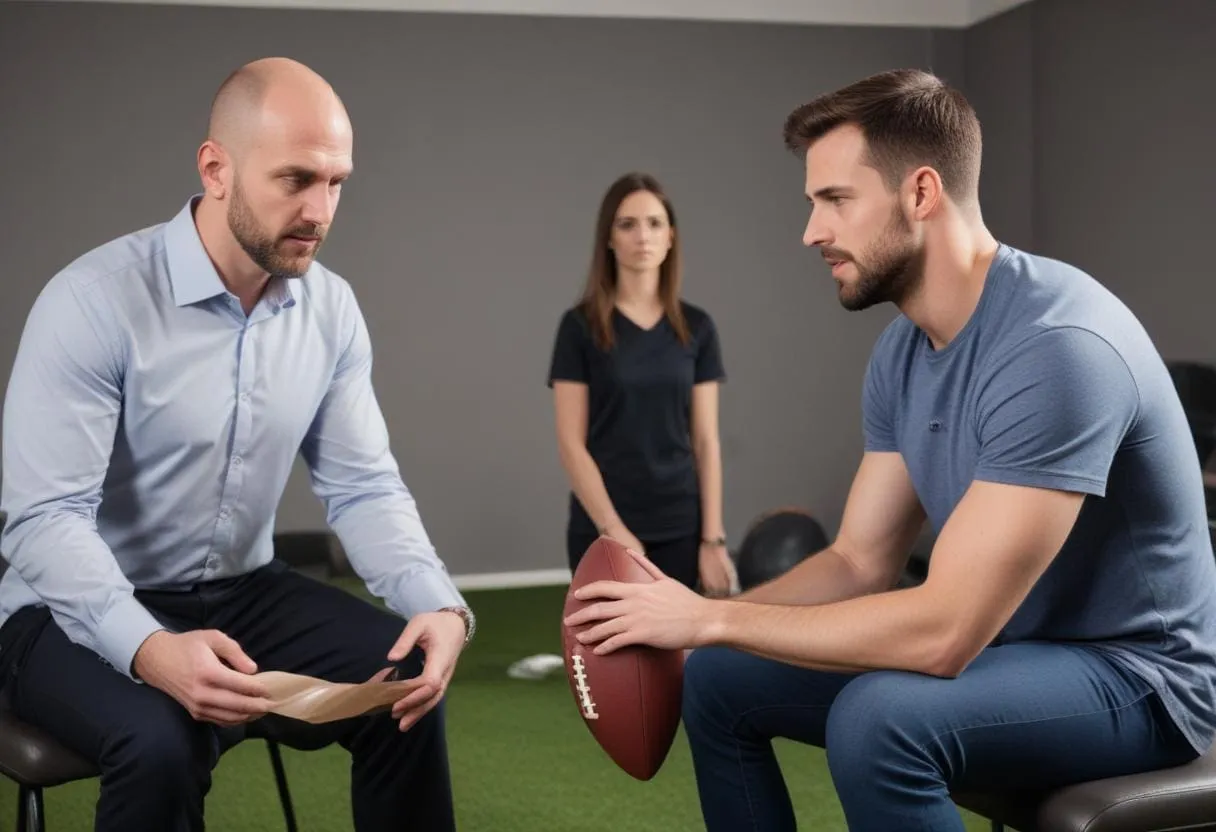In the high-stakes world of football, physical prowess is only half the battle. Mental toughness, resilience, and focus are equally crucial for success on the gridiron. Football psychology plays a vital role in determining a player’s performance, and teams are increasingly recognizing the importance of mental preparation in gaining a competitive edge. One technique that’s gaining traction in the sports world is hypnotherapy, a powerful tool for cultivating mental strength and boosting football performance.
The Psychology of Football Performance
Football is as much a mental game as it is physical. Players must maintain focus, composure, and confidence in the face of intense pressure, crowd noise, and physical exhaustion. The ability to manage stress, overcome self-doubt, and stay motivated can make all the difference between victory and defeat.
Research has shown that football players who possess high levels of mental toughness tend to perform better under pressure, recover more quickly from setbacks, and exhibit greater overall resilience (Gould et al., 2011). Conversely, players who struggle with anxiety, self-doubt, or lack of confidence often underperform and may be more prone to injury or burnout.
The Science Behind Hypnotherapy
Hypnotherapy is a form of guided meditation that leverages the power of the subconscious mind to induce positive change. By accessing the subconscious, hypnotherapists can help clients rewire negative thought patterns, build confidence, and develop coping strategies for managing stress and anxiety.
In the context of football psychology, hypnotherapy can be used to:
- Enhance focus and concentration: By training the mind to stay present and focused, players can improve their ability to read the game and make split-second decisions.
- Build confidence and self-esteem: Hypnotherapy can help players overcome self-doubt and develop a stronger sense of self-worth, leading to improved performance and increased motivation.
- Manage stress and anxiety: By teaching players effective coping mechanisms, hypnotherapy can reduce pre-game jitters and improve overall mental resilience.

Case Studies: Hypnotherapy in Action
Numerous case studies have demonstrated the effectiveness of hypnotherapy in enhancing football performance. For example:
- A study published in the Journal of Sports Sciences found that hypnotherapy significantly improved the shooting accuracy of soccer players (Kornspan et al., 2015).
- Another study published in the Journal of Strength and Conditioning Research found that hypnotherapy enhanced the muscular strength and endurance of college football players (De Moor et al., 2015).
How Hypnotherapy Works
A typical hypnotherapy session involves several stages:
- Induction: The client is guided into a state of relaxation using visualization techniques or progressive muscle relaxation.
- Deepening: The client is led deeper into relaxation using counting or breathing exercises.
- Suggestion: The hypnotherapist provides positive affirmations or visualizations tailored to the client’s specific needs.
- Awakening: The client is gently brought back to full awareness.

Conclusion
In today’s competitive football landscape, mental toughness is no longer a luxury – it’s a necessity. By leveraging the power of hypnotherapy, players can gain a critical edge over their opponents and unlock their full potential.
At Revibe Therapy, our team of experienced hypnotherapists specializes in helping athletes cultivate mental strength and boost performance. With our expert guidance, you can overcome self-doubt, build confidence, and achieve your goals on the gridiron.
And with Revibe Therapy’s Online Therapy platform, you can access our services from anywhere in the world – at any time. Our online sessions are designed to be just as effective as in-person therapy, ensuring you receive the support you need to succeed.
Don’t let mental barriers hold you back from achieving greatness on the field. Contact Revibe Therapy today to discover how hypnotherapy can revolutionize your football performance.
References
De Moor et al. (2015). The effects of hypnosis on muscular strength and endurance in college football players. Journal of Strength and Conditioning Research, 29(5), 1239-1246.
Gould et al. (2011). The effects of mental toughness on athletic performance. Journal of Sport & Exercise Psychology, 33(2), 133-144.
Kornspan et al. (2015). The effects of hypnosis on shooting accuracy in soccer players. Journal of Sports Sciences, 33(12), 1345-1353.






 Most often it is not the situation, but how we think about the situation that causes our feelings. How we think about situations is based on what we have learned and experienced in the past. Over time we may begin to react in ways that do not help us, and start feeling stuck and unhappy.
Most often it is not the situation, but how we think about the situation that causes our feelings. How we think about situations is based on what we have learned and experienced in the past. Over time we may begin to react in ways that do not help us, and start feeling stuck and unhappy. Dr. Ivey, Psy.D. completed her doctorate in Clinical Psychology with a concentration in Organizational Consulting at Pacific University’s School of Graduate Psychology in Oregon. For her dissertation, Dr. Ivey conducted qualitative research on the effects of workplace discrimination and microaggressions on minority Veterans’ overall job satisfaction with their military career. She completed the APA-accredited Psychology Internship training program and Postdoctoral Residency at the Orlando VA Healthcare System.
Dr. Ivey, Psy.D. completed her doctorate in Clinical Psychology with a concentration in Organizational Consulting at Pacific University’s School of Graduate Psychology in Oregon. For her dissertation, Dr. Ivey conducted qualitative research on the effects of workplace discrimination and microaggressions on minority Veterans’ overall job satisfaction with their military career. She completed the APA-accredited Psychology Internship training program and Postdoctoral Residency at the Orlando VA Healthcare System. I know you’re stressed and exhausted while trying to keep up with the world’s go go go trials, trying to do it all perfectly. This “hustle” mentality makes all of us prone to mistakes and poor decisions. Your mind is overthinking at such a high pace by now that you no longer know where to find the off button, or recall when you turned it on in the first place. Trust me, I’ve been there, and in that dark place is where you start to feel worried and fearful about the future because you don’t feel in control of the now. Sound familiar?
I know you’re stressed and exhausted while trying to keep up with the world’s go go go trials, trying to do it all perfectly. This “hustle” mentality makes all of us prone to mistakes and poor decisions. Your mind is overthinking at such a high pace by now that you no longer know where to find the off button, or recall when you turned it on in the first place. Trust me, I’ve been there, and in that dark place is where you start to feel worried and fearful about the future because you don’t feel in control of the now. Sound familiar? Often, when we seek support through therapy, we seem to underestimate the power of our own role in the healing process. We have all carried metaphorical luggage filled with experiences and events that have impacted our life. I know that it has been hard for you to seek support in untangling those moments from the past that now provoke stress, anxiety, frustration, anger, loneliness, sadness, guilt, depression, or hopelessness. The fact that you are reading this means that you have the intention to become the best version of yourself.
Often, when we seek support through therapy, we seem to underestimate the power of our own role in the healing process. We have all carried metaphorical luggage filled with experiences and events that have impacted our life. I know that it has been hard for you to seek support in untangling those moments from the past that now provoke stress, anxiety, frustration, anger, loneliness, sadness, guilt, depression, or hopelessness. The fact that you are reading this means that you have the intention to become the best version of yourself.